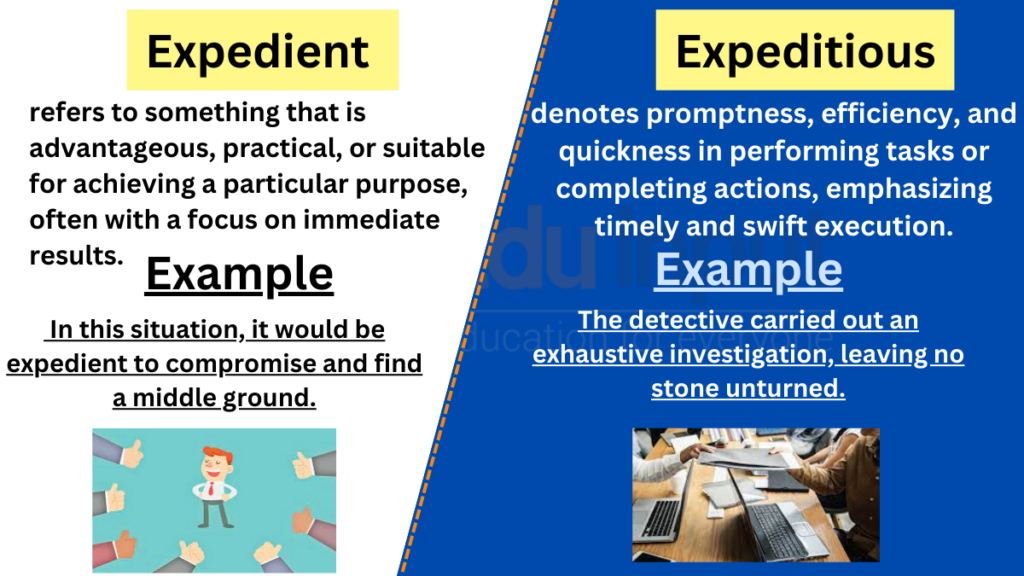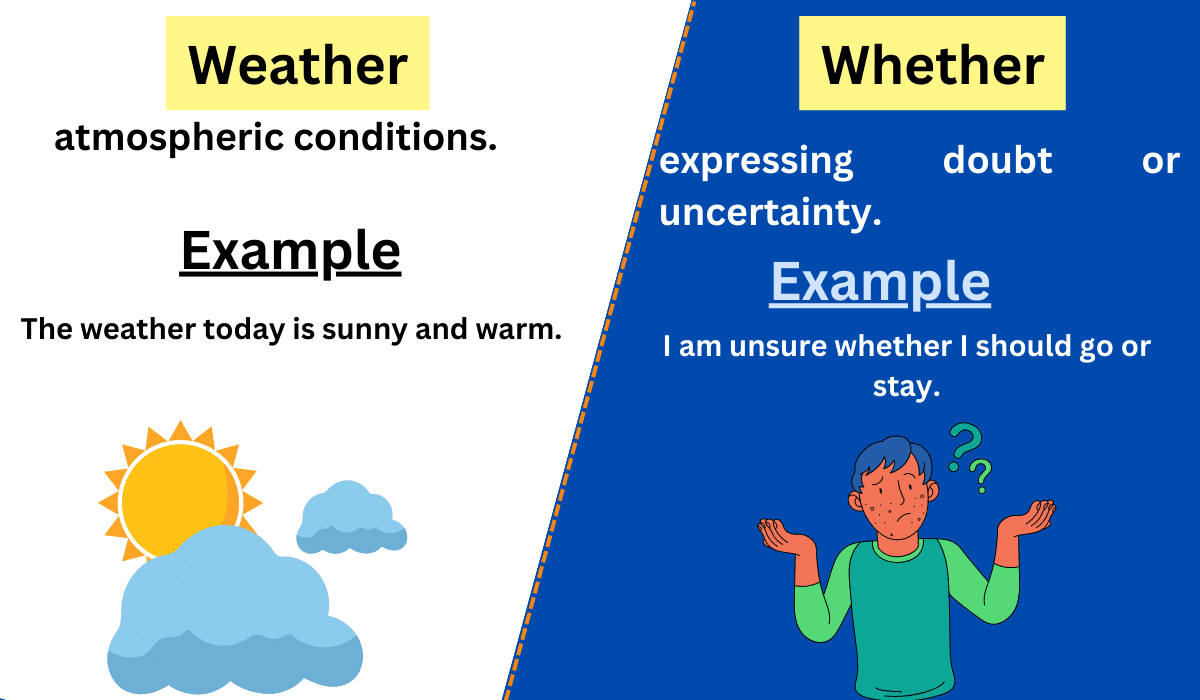Expedient vs. Expeditious-Difference between and Examples
In our daily lives, we often come across the terms “expedient” and “expeditious,” which share similarities but have distinct meanings and applications. This article aims to clarify the difference between “expedient” and “expeditious,” providing clear definitions, illustrative examples, and practical insights. By understanding their nuances, we can accurately convey our intentions and make informed decisions that align with our objectives.

Meanings and Examples
Expedient meaning
The meaning of expedient refers to something that is advantageous, practical, or suitable for achieving a particular purpose, often with a focus on immediate results.
Expedient Examples
a) In this situation, it would be expedient to compromise and find a middle ground.
b) He made an expedient decision to postpone the meeting due to unexpected circumstances.
c) The company implemented cost-cutting measures as an expedient solution to address the financial challenges.
Expeditious meaning
The meaning of expeditious denotes promptness, efficiency, and quickness in performing tasks or completing actions, emphasizing timely and swift execution.
Expeditious Examples
a) The team worked in an expeditious manner to meet the tight deadline.
b) She completed the project with expeditious precision, delivering high-quality results ahead of schedule.
c) The airline strives to provide expeditious service, ensuring minimal delays for its passengers.
Difference between Expedient and Expeditious
| Expedient | Expeditious | |
| Meaning | Advantageous, practical for a specific purpose | Prompt, efficient, swift in action |
| Example | “In this situation, it would be expedient to compromise.” | “The team worked in an expeditious manner to meet the deadline.” |
| Usage | Describing practicality or advantage | Referring to promptness and efficiency |
| Grammar | Adjective | Adjective |
Usage in a Paragraph
When faced with a complex decision, it may be expedient to consider both short-term and long-term consequences. This pragmatic approach allows one to navigate challenges effectively and find solutions that offer immediate advantages without compromising future prospects. On the other hand, when dealing with time-sensitive tasks or projects, it is crucial to prioritize an expeditious execution. By focusing on efficiency, promptness, and attention to detail, individuals and organizations can achieve desired outcomes within the stipulated time frame.
Distinguishing between “expedient” and “expeditious” enables us to communicate our intentions and actions more precisely. “Expedient” emphasizes practicality and advantage in achieving specific objectives, while “expeditious” highlights promptness and efficiency in executing tasks. By understanding and utilizing these terms accurately, we can make informed decisions, execute actions promptly, and effectively navigate various situations, ultimately enhancing our ability to achieve desired outcomes in a timely and advantageous manner.







Leave a Reply